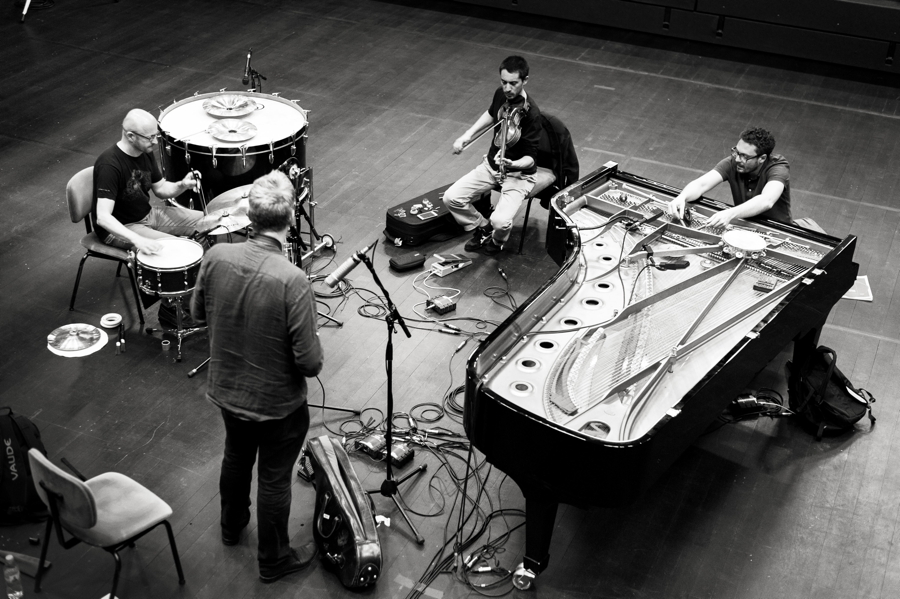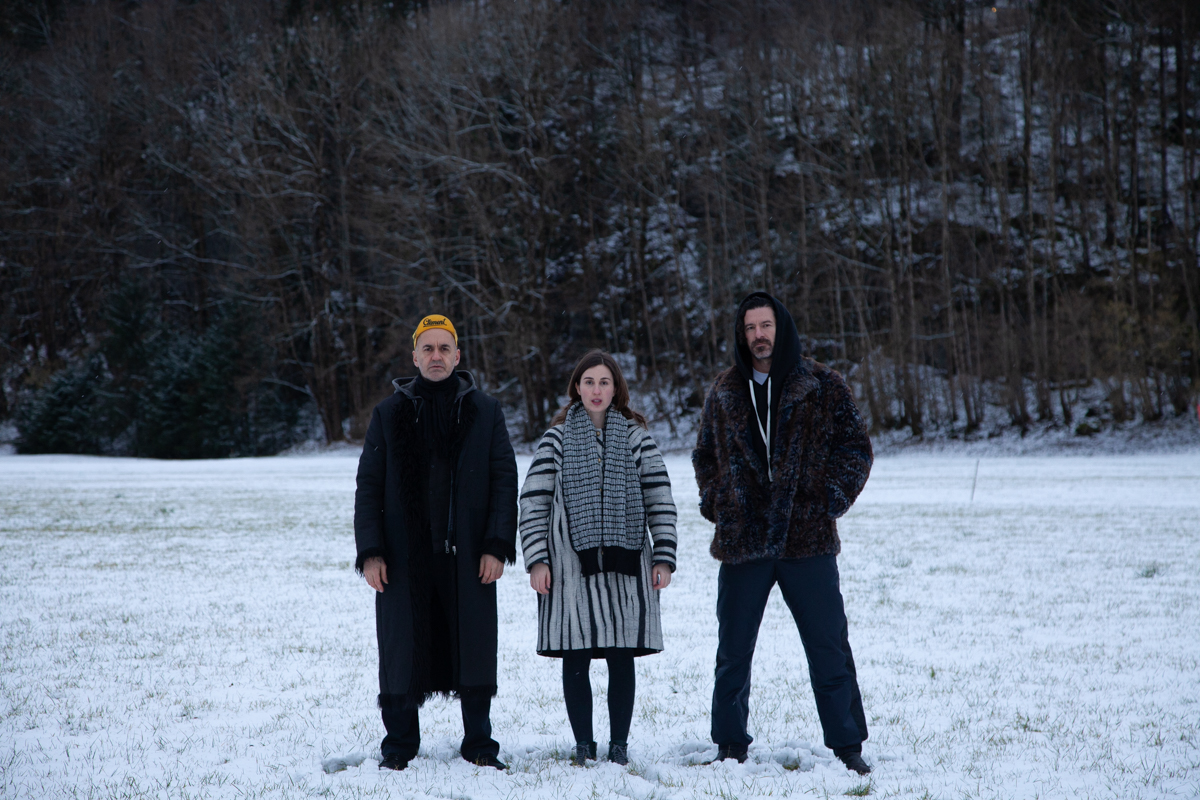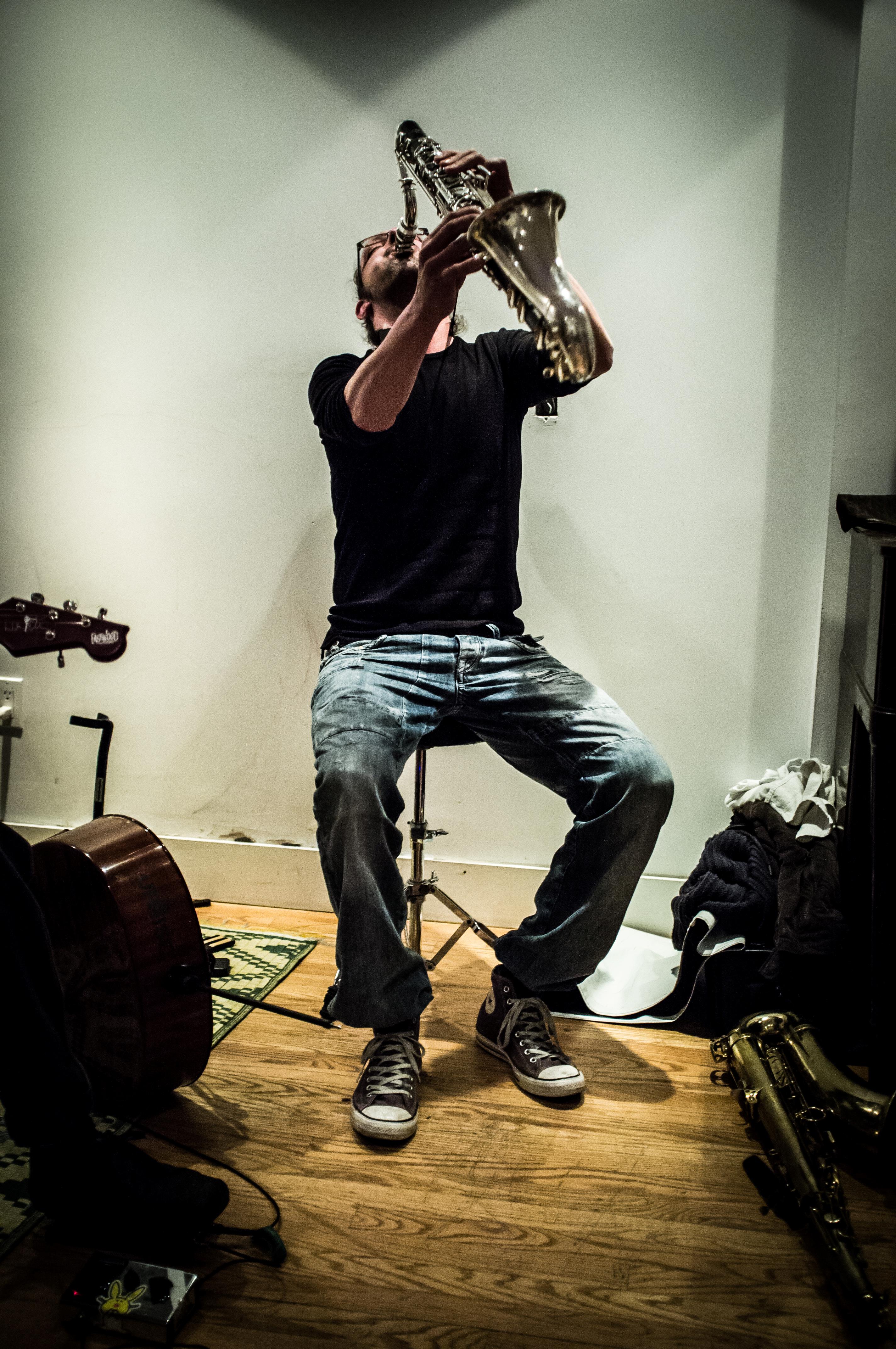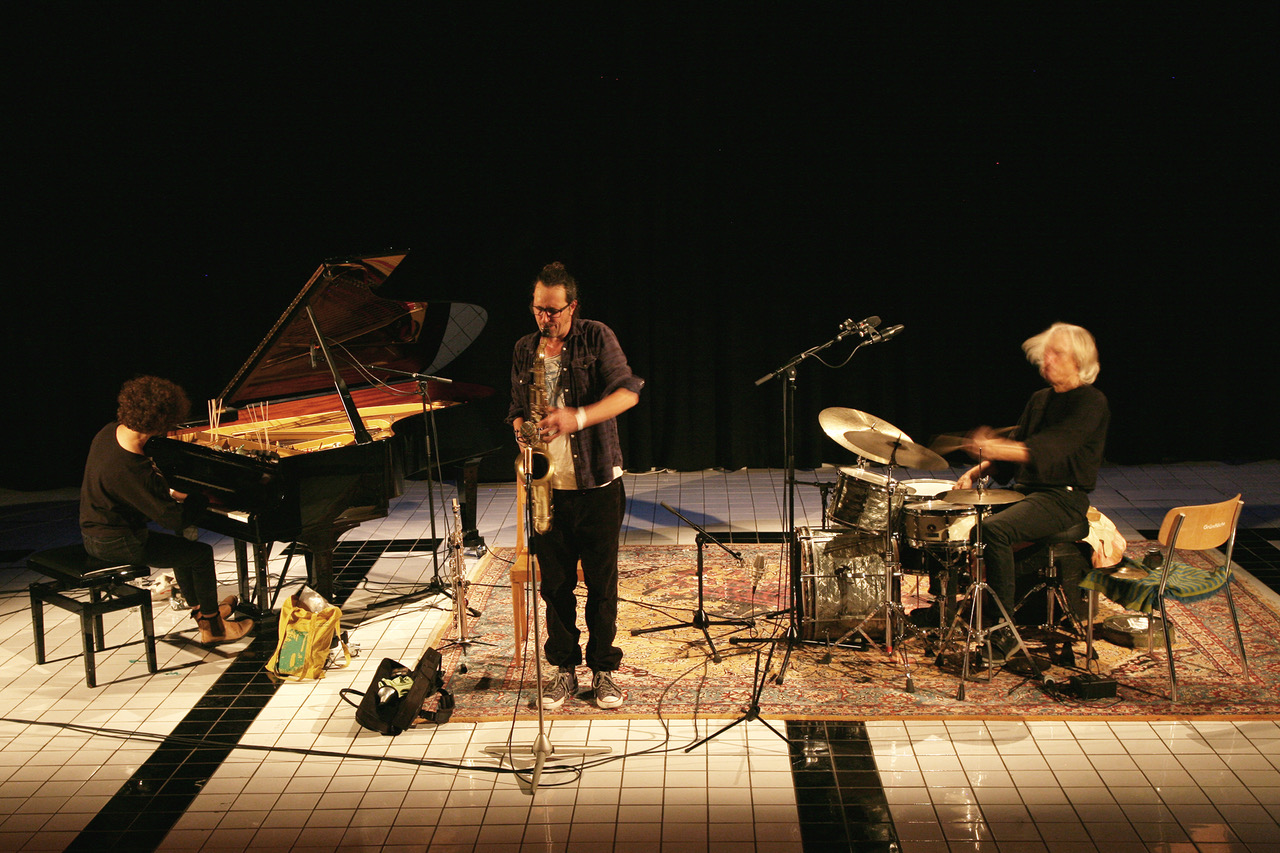SRF-Video interviews of How Noisy are the Rooms? and Der Verboten
Since its foundation in 1975, Willisau Jazz Festival has been an important hub for improvised music. Every year in late summer, improvisers from all over the world gather together in the Lucerne hinterland, where they perform in intimate settings or as larger acts in the festival hall. SRF 2 Kultur portrays them every year in various programmes. This year, SRF Kultur music editors Roman Hošek and Luca Koch also conducted live video interviews with various bands and artists. Luca Koch presents two of the featured bands in our neoblog: Der Verboten and How Noisy Are The Rooms?

Luca Koch
Anyone who discovers the band name (Der Verboten) in a programme might immediately think of a white, round sign with a red border or even think the name is a typo. Does it mean “das Verbot” (prohibition) or “die Verbotenen” (the forbidden) or “Der Vorbote” (the precursor)? What appears to be grammatically incorrect originally arose from a joke, as the quartet featuring Christian Wolfarth, Frantz Loriot, Antoine Chessex and Cédric Piromalli rehearses in both German and French, including translation errors. The name has stuck, because who defines what is right and what is wrong? Like music, our languages are made up of rules and structures that can be broken. Der Verboten’s music of is free of rules, intertwined, and it’s precisely this interplay that drives the band.
Der Verboten: Refinement instead of innovation
Exploring new sounds or expanding the individual instruments’ sound is not the focus of the ensemble, they try instead to sonically merge and deepen their collective sound. In the interview, Christian Wolfarth repeatedly emphasises how important it is to find the right bandmates. This quartet is like an old friendship, even if they haven’t rehearsed or played on stage for a long time, they pick up exactly where they left things when they last met.
Time merging
In order for piano, drums, viola and tenor saxophone to grow into a single musical organism, the band needs one thing above all – time. The desired form of interwoven interplay only emerges during long improvisation sessions. “I think I can say that we manage to achieve it during every concert,” says Christian Wolfarth in the interview. The ensemble played a total of two pieces in their one-hour set at the Willisau Jazz Festival and the break in between served as an opportunity for everyone – especially for the audience – to catch their breath. Slow developments and barely noticeable changes meant that the audience in the concert hall kept wondering how Verboten had musically moved from A to B.
Christian Wolfarth and Antoine Chessex before their concert in a live interview at the Jazz Festival Willisau 2023.
The band performed on stage with the same calm and reflective approach as in a conversation. They transported me into their world of sound to such an extent that during the concert I no longer knew whether twenty or just two minutes had passed.
Another band that plays with the audience’s sense of time is How Noisy Are The Rooms? In contrast to Der Verboten, however, the minutes seem to run by, as their sound aesthetic is shaped by high tempos and high density of sounds.

‘How Noisy Are The Rooms?’ likes to ask questions.
The trio featuring Alfred Vogel, Joke Lanz and Almut Kühne likes to ask questions: How much noise can a room tolerate or can music cause whiplash? Improvisation with lots of energy, punk aesthetics and fast interaction gives the listeners at How noisy are the rooms? concerts the feeling of being flung back and forth like balls in pinball machines. The trio’s creative musical anarchy on stage challenges the audience, sometimes even overwhelmingly. Alfred Vogel emphasises: “I don’t really mean to overwhelm people. Understanding follows listening. You just have to open your ears and, at best, it does something to you.”
Turntables and whistle notes
The driving rhythms of Alfred Vogel on drums with Almut Kühne’s vocal acrobatics lend How Noisy Are The Rooms?’s music an archaic flair, as percussion and voice are probably the oldest instruments known to mankind. Joke Lanz, looping and distorting sound samples with his turntables, brings a performative, electro-analogue and humorous component into play.
Alfred Vogel before the concert of How Noisy Are The Rooms? in a live interview at the Jazz Festival Willisau 2023.
Alfred Vogel wanted to become a rock star and this energy is still present in How Noisy Are The Rooms? but he is glad that he took a different path, as his current musical output is diverse and rich.
Post-musical hidden object image
The trio’s music consists of eclectic sounds and short, pointed phrases like in hidden object images. There are no clear structures, harmonies or tangible melodies in their soundscape. Nevertheless, the musical disputes between the three musicians conjure up images in the mind: I feel transported to a roaring metropolis or as part of a game animation.
How Noisy Are The Rooms? Video ©Denis Laner / Alfred Vogel 2021
With their density and abundance of individual musical parts, How Noisy Are TheRooms? capture the zeitgeist of today’s restless world. Alfred Vogel explains in the interview: “Music or art should always reflect the world we live in. What is overwhelming? Today’s events are also overwhelming. Everything happens at the same time. Everything, everywhere, all at once. It’s the same in our sound”. How Noisy Are the Rooms? is this year’s edition biggest discovery for me at Willisau Jazz Festival.
Luca Koch
Cédric Piromalli, Christian Wolfarth, Frantz Loriot, Almut Kühne, Alfred Vogel, Sudden infant
broadcasts SRF Kultur:
Neue Musik im Konzert, 25.10.2023: Anarchie und Energie am Jazzfestival Willisau, Redaktion Benjamin Herzog.
neo-profiles:
How Noisy Are The Rooms?, Joke Lanz, Der Verboten, Antoine Chessex



